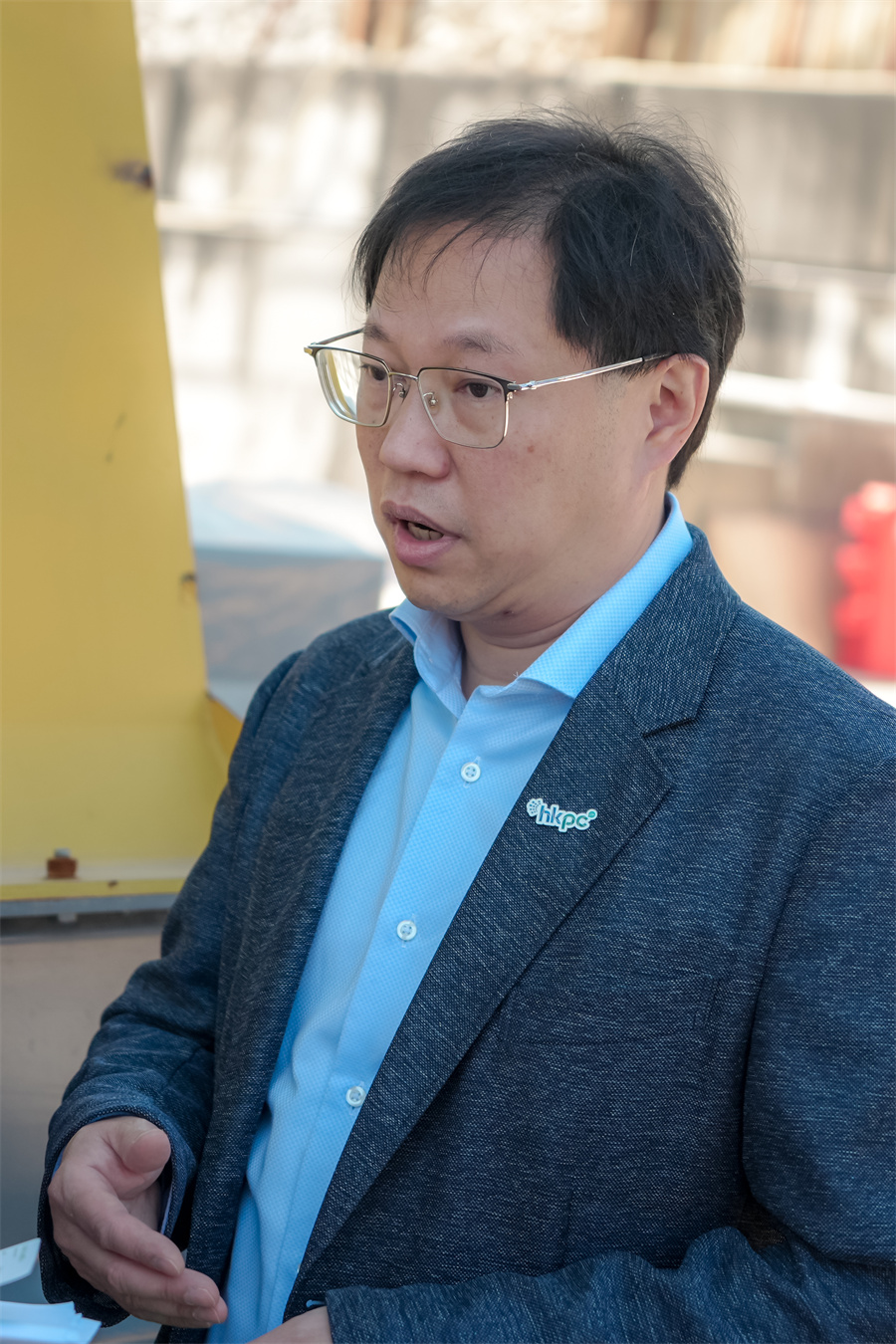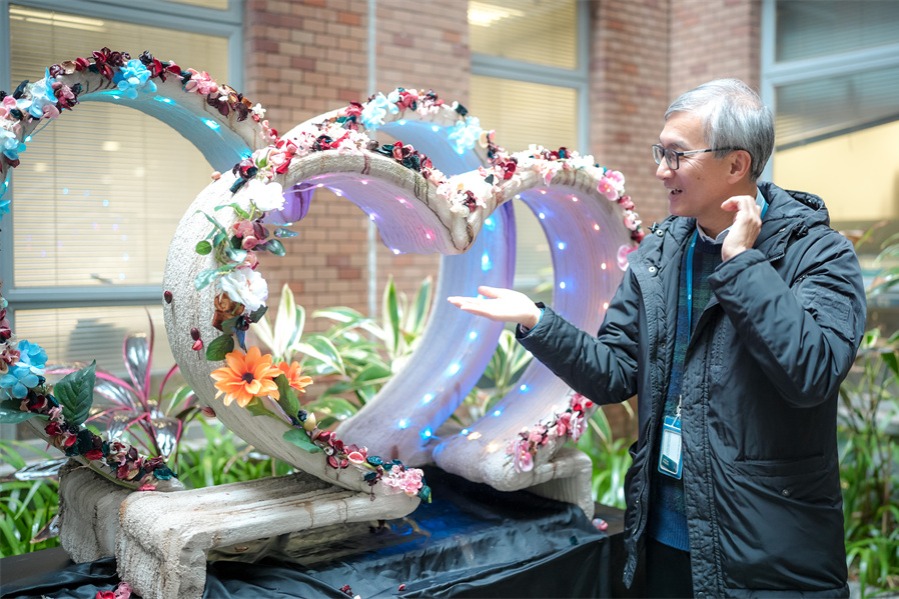A second, constructive life for greenhouse gas
Hong Kong's eco-bricks lay foundation for cleaner future


Enhanced efforts
Keith Choy, general manager of HKPC's Green Living and Innovation Division, said Hong Kong is falling behind its emission reduction targets, despite a year-on-year 3 percent drop in per capita CO2 emissions in 2022.
"Greater efforts are needed to achieve the 2050 carbon neutrality goal. A key technology for this is carbon capture, which involves capturing CO2 from industrial activities. This process can achieve net-zero or even negative emissions in some cases," Choy said.
However, Poon lamented the lack of policy support for such technologies in Hong Kong, noting the government's carbon neutrality road map excludes carbon removal technologies like CCU.
In contrast, the mainland, Europe, and the US enforce carbon footprint requirements, with non-compliant companies facing operational suspensions.
The construction industry is one of the few sectors in Hong Kong that could adopt carbon capture technology, Poon said,
Electricity generation accounts for about 65 percent of the city's emissions.
Poon suggested building factories near landfills or power plants, which are major carbon emitters. CO2 released into the air could be directly channeled to the factory, where construction materials would chemically react with and deplete the gas, eliminating the need for costly capture, refinement, and storage. This makes the process financially sustainable and suitable for wide adoption, Poon said.
Hong Kong's Environment and Ecology Bureau said at present, many CCU technologies have yet to be developed into mature, energy-efficient, and cost-effective technologies for wider application. The bureau said it will continue to assess the feasibility of applying this technology as part of the decarbonization strategies.
In addition to raising public and corporate awareness of CCU, Choy suggested that the government establish a dedicated platform to share technology, providing SMEs with essential information, equipment rental options, and tailored solutions to lower the barriers to adopting CCU technology.
Choy said by offering tailor-made carbon management consulting services, the HKPC could assist enterprises in formulating emission reduction plans. It could also provide training and resources on CCU technology, enabling businesses to explore new low-emission opportunities and transition toward sustainable practices.
























